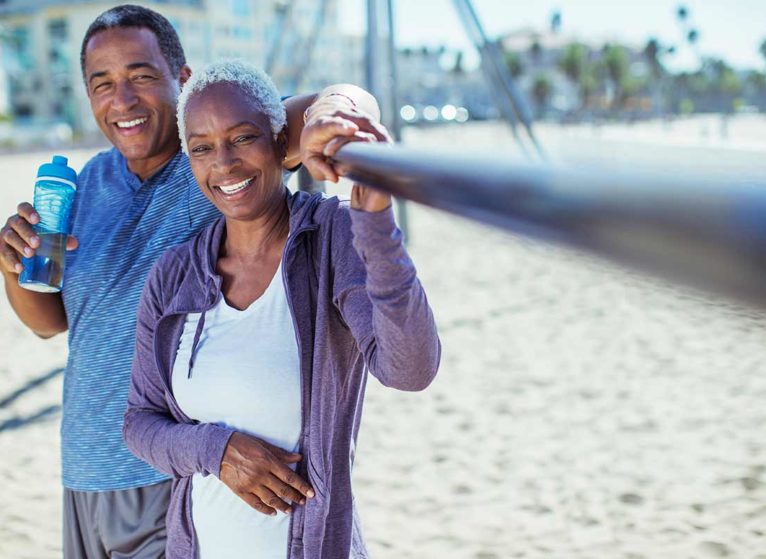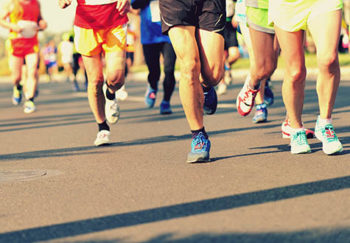When I got the Fitbit app a couple of years ago, I noticed it had a hydration feature: I could use it to track how much water I was drinking. This was a great idea, I thought, because the conventional wisdom about how much water to drink had been drilled into me again and again: Stay hydrated by drinking 64 ounces a day.
Soon, though, logging my water became cumbersome, and I felt guilty. If I could just drink more water, I thought, my workouts would be easier, I’d have fewer headaches, and I’d be less tempted to snack all the time.
It turns out most of what I knew about hydration was wrong.
Water, Water Everywhere?
Kidney specialist Mitchell Rosner, MD, researches how the body metabolizes salt and water. A couple of years ago, he worked on international guidelines to protect athletes — not from dehydration, but from the serious risks associated with overhydrating.
If you’re taking in too much water, the concentration of sodium in your blood drops, a condition called hyponatremia. This can lead to headaches and nausea, and, in serious cases, death. Rosner says there are three to four documented cases each year. “We think it’s more prevalent, but there’s no reporting mechanism.”
So, whether we’re sitting around the office all day or working out, how much water should we really drink?
“Drink to your thirst,” Rosner says. “Your thirst sensation is evolutionarily developed to keep you from getting dehydrated.”
The rare exception is when you’re sweating so much, so quickly, that you can’t keep up with your fluid losses. In our area, this might happen during the summer with serious runners or football players.
Overhydrated or Dehydrated?
See a doctor right away if you’re experiencing:
- Confusion
- Severe nausea
- Headaches
In that case, Rosner has four recommendations for monitoring fluid intake:
- Anticipate your fluid losses and stay ahead of them — but if you start feeling bloated or get a headache, stop drinking.
- Keep a scale nearby and weigh yourself. If you’re losing weight during a practice, it has to be fluids. In that case, you need to drink more.
- Watch your salt loss. If you can see salt on your skin or on your shirt, you’re losing too much and need to replace sodium.
- If you do get dehydrated, you’ll notice you feel thirsty and haven’t urinated recently. But you’ll be OK once you drink.
Otherwise, drink when you feel thirsty. Nix the “64 ounces a day” rule and just listen to your body.
Sports Drinks and Sparkling Water: Hydration drinks?
When it comes to replacing salt and electrolytes, juice and sports drinks don’t do much. “They replace a little of the electrolytes, but they’re still fairly dilute. They don’t have much in them,” Rosner says. A better solution: If you’re really exercising intensely and think you’re losing a lot of salt, eat a small packet of salt from a fast food restaurant every hour or mix it into your water.
Hydration Advice for Athletes
Read about Rosner’s research on overhydration in athletes.
Katherine Basbaum, a registered dietitian with UVA’s Heart and Vascular Center, pointed out in a recent WINA interview that sports drinks also have added sugar. “I’ve got these guys that come in and they’re like, ‘I’ve been working in the yard for an hour and so I needed to drink a big thing of Gatorade because I was sweating.’ You really just need water to replenish” unless your workout lasts longer than 90 minutes, she says.
As for the zero-calorie flavored sparkling water that’s become so popular, it’s fine to drink that instead of tap water if you prefer, Rosner says. You just might get a stomachache from the carbonation if you try to exercise afterward.


